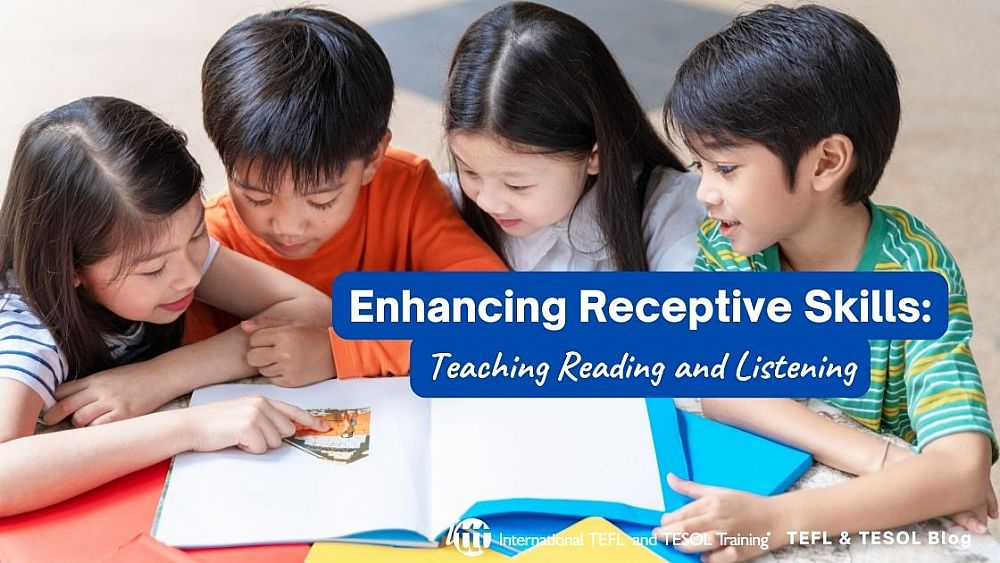Enhancing Receptive Skills: Teaching Reading and Listening

Receptive skills, namely reading and listening, are crucial for English language learners. These skills are essential for understanding and communicating effectively. From comprehension to specific purposes, such as entertainment or information gathering, receptive skills play a vital role in language acquisition.
Table of Contents
The Importance of Comprehension
Teaching Challenges and Approaches
Are you ready to teach English as a foreign language?
Check out what our course grads say in our many video testimonials!
Disclaimer: The views and opinions expressed in this blog post are solely those of the author, an alumni of ITTT (International TEFL and TESOL Training). They do not necessarily reflect the views or opinions of ITTT. The content provided in this post is for informational purposes only and should not be considered as official endorsement or representation by ITTT.
The Importance of Comprehension
Comprehension is at the core of receptive skills. Reading and listening require not only the use of eyes and ears but also the ability to understand and make sense of the language. Receptive skills serve various purposes, ranging from entertainment, like watching a film, to achieving specific goals, such as obtaining weather forecasts through news channels.
Skills for Comprehension
Readers and listeners employ various strategies to comprehend information. Examples include scanning, skimming, and deduction.
Scanning involves searching for specific pieces of information in a text or dialogue relevant to the reader's purpose. For instance, when reading a recipe, one might scan for a particular ingredient.
Skimming involves quickly reading or skipping through a text to grasp the general idea. It entails focusing on key words or phrases to create a basic understanding of the text.
Deduction is the ability to infer implicit or suggested meanings based on contextual clues. For example, a driver uses deduction to adjust their speed in a school zone based on the day and time.
Teaching Challenges and Approaches
Teaching receptive skills presents challenges that vary between reading and listening. Written text allows for reference and review, but students may find longer texts or unfamiliar grammar intimidating. Listening presents different obstacles, requiring unique activities and tasks.
In both cases, teaching relevant vocabulary is crucial for student success in utilizing receptive skills. Introducing new vocabulary and grammar before presenting the text or audio clip helps students comprehend the materials they encounter.
Considerations for Teachers
Teachers should consider factors such as the length, subject matter, and difficulty level of texts or audio materials. Difficulty may refer to the speed of audio or unfamiliar grammar structures in written texts.
Conclusion
Teaching and developing receptive skills is essential for language learners. By implementing effective strategies, focusing on comprehension, and addressing vocabulary needs, teachers can enhance students' abilities in reading and listening, empowering them to engage with the language more effectively.
Are you ready to teach English as a foreign language?
Apply now & get certified to teach english abroad!
Speak with an ITTT advisor today to put together your personal plan for teaching English abroad!
Send us an email or call us toll-free at 1-800-490-0531 to speak with an ITTT advisor today.
Related Articles:
- Top 10 Cities in Europe with the Highest Demand for English Language Teachers
- 5 Reasons To Take A TEFL Course Right Now - Even If You Are Not Leaving Yet | ITTT | TEFL Blog
- All the Documents You Will Need to Teach English Abroad
- The Impact of Positive Motivation on an ESL Classroom
- You're Never Too Old to Change Your Life and Do a TEFL Course | ITTT | TEFL Blog
- Getting Student Placement Right - The Best Desk Arrangements for EFL Students



